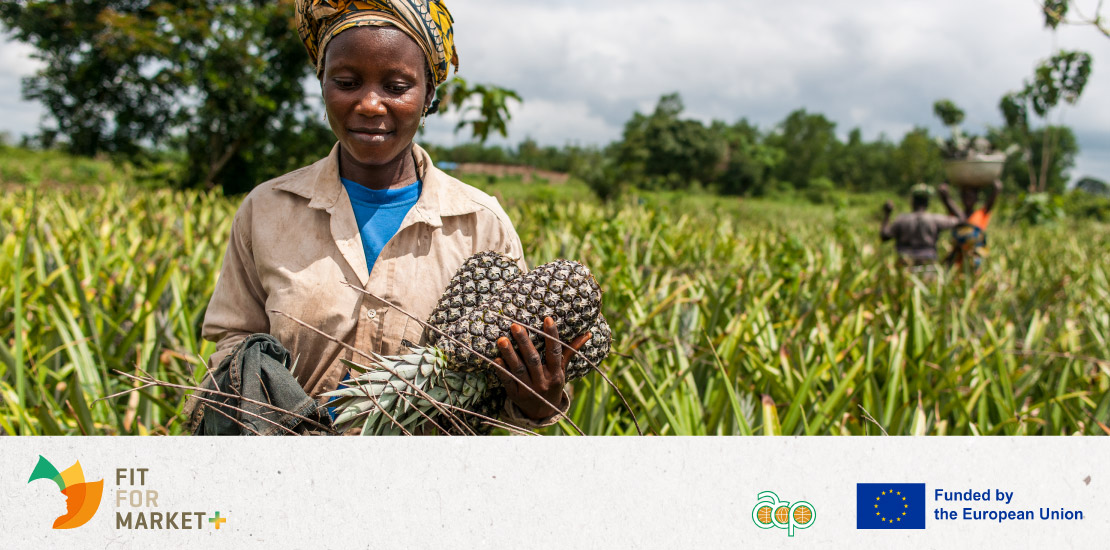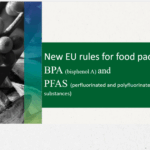- 01/07/2024
- Posted by: Sandra Borma
- Category: News

BENIN: a new innovative Africa-EU university-private sector partnership for sustainable pineapple production.
Pineapple production is at the heart of export diversification in Benin. However, the depletion of soil nutrients and high energy requirements for pineapple juice production challenge its sustainability. Within an independent research project funded by VLIRUOS (Belgian government), a pioneering project in Benin aims to address these challenges through an innovative and collaborative approach, optimising the use of underutilised pineapple crop residues and processing them through anaerobic digestion to produce renewable energy and organic fertiliser. The project has strong focus on climate change mitigation and gender equality.
Key partnerships and SDGs
This initiative is the result of a strong research partnership between KU Leuven, the University of Abomey-Calavi (UAC) and the National University of Sciences, Technologies, Engineering and Mathematics (UNSTIM). It also involves a multi-stakeholder network set up by COLEAD and the National Federation of Pineapple Producer Cooperatives of Benin (FENACOPAB). The project aims to provide access to renewable energy and organic fertiliser for sustainable agriculture by transforming waste from one of Benin’s core economic activities – pineapples – into valuable resources. This initiative contributes to achieving universal access to affordable, reliable, sustainable and modern energy (SDG 7) and improving soil fertility and crop productivity (SDGs 2 and 12).
SDG 7: Ensure access to affordable, reliable, sustainable and modern energy. By producing biogas from pineapple residues, the project enables energy autonomy for pineapple juice production units, 55% of which are run by women.
SDG 2: Achieve food security and improved nutrition through sustainable agriculture. The availability and use of organic fertiliser will improve soil fertility, crop productivity and fruit quality.
SDG 12: Ensure sustainable consumption and production patterns. The project will promote the use of organic fertiliser derived from anaerobic digestion, thereby reducing reliance on chemical fertiliser and improving environmental sustainability.
Biogas production from pineapple processing residues displaces fossil fuel-based energy sources, protecting forests and increasing carbon stocks. Improving soil fertility and halting soil degradation further increases soil carbon stocks, contributing significantly to climate change mitigation.
Gender equality and empowerment
Gender equality and empowerment are central to this project. Currently, over 50% of the pineapple producers and processors involved are women. The project ensures that women are actively involved in decision-making processes, particularly on activities that focus on biogas production, organic fertiliser development and soil fertility improvement. The involvement of women farmers within the communities is a priority, and the project also emphasises the training and education of women. Two female professors and researchers in Benin play a key role in inspiring young women to pursue higher education and careers in agriculture and environmental sciences.
Capacity building and knowledge dissemination
The project includes the training of eight local Masters students and two PhD students, with at least 50% of the candidates being women. The PhD students will enrol in the Arenberg Doctoral School for a 4-year programme at KU Leuven. This training will increase the pool of teaching researchers and young specialists in soil fertility and renewable energy, contributing to the overall development of sustainable agriculture in Benin.
The installed equipment and infrastructure will support the training of students in waste treatment, energy and process engineering, further strengthening the capacity of local institutions. The results of the project will be disseminated through peer-reviewed scientific publications and practical guides on biogas production and organic waste management. These resources will be shared not only with pineapple producers in Benin, but also with other African, Caribbean and Pacific countries and beyond. COLEAD’s activities under this new initiative will be closely linked to the Fit For Market Plus programme.
This activity is supported by the Fit For Market Plus (FFM+) programme, implemented by COLEAD within the Framework of Development Cooperation between the Organisation of African, Caribbean and Pacific States (OACPS) and the European Union. This publication receives financial support from the European Union and the OACPS. The content of this publication is the sole responsibility of COLEAD and can in no way be taken to reflect the views of the European Union or the OACPS.





